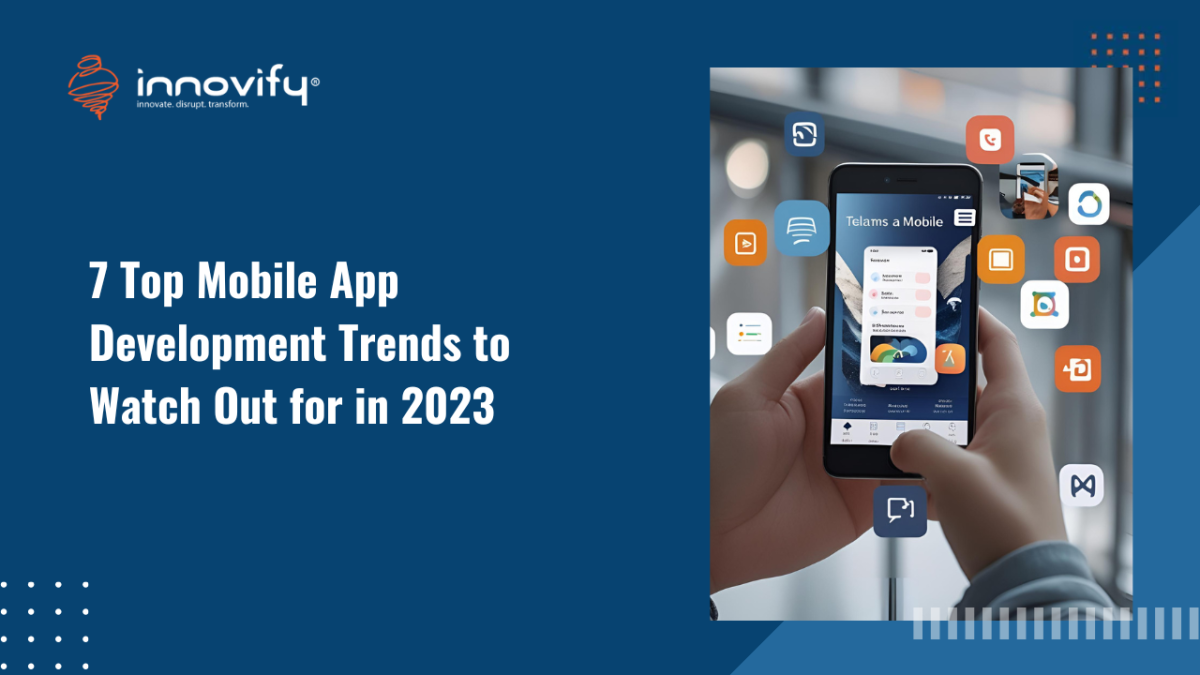AI/ML
7 Top Mobile App Development Trends to Watch Out for in 2023
Mobile App Development Trends in 2023
Mobile app development is an ever-evolving field constantly adapting to new technologies, consumer demands, and market trends. As we approach 2023, it’s exciting to consider what new mobile app developments and trends will emerge in the world of mobile app development.
According to Statista, smartphone users worldwide are expected to reach 5.8 billion in 2026. With such a vast and growing audience, developers must stay up-to-date with the latest trends to create apps that cater to the needs of this massive user base.
In this blog, we will explore the top mobile app development trends to look out for in 2023. From artificial intelligence and machine learning to 5G connectivity and blockchain, we’ll delve into the latest advancements that will shape the future of mobile app development.
So, let’s take a closer look at the future of mobile app development.
1. The era of 5G
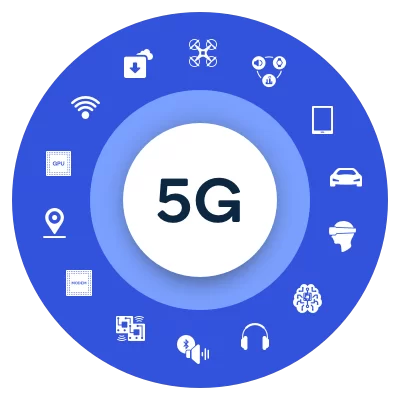
The 5G network is poised to revolutionize the mobile app development industry in 2023. It’ll enable app developers to create high-quality, immersive mobile experiences that were previously impossible.
With 5G, mobile apps can handle massive amounts of data at unprecedented speeds, enabling real-time streaming, augmented reality, and virtual reality experiences. The increased speed and reliability of 5G networks will allow businesses to create more personalized and engaging mobile experiences for their customers.
App developers can use 5G to create more interactive apps that rely on real-time data to provide personalized recommendations, notifications, and alerts. This, in turn, will help businesses improve customer engagement, loyalty, and retention.
The security of 5G networks is crucial in the era of 5G, as it is vulnerable to various cyber threats and requires robust measures to ensure confidentiality, integrity, and data availability.
2. Gamification
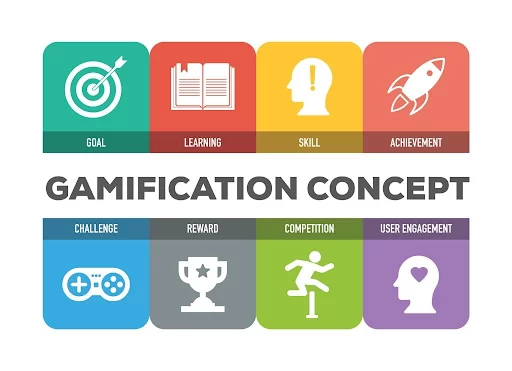
Gamification is a trend that has been around for a while, but it’s still going strong in 2023. It involves using game mechanics, such as points, badges, and leaderboards, to motivate and engage users in non-gaming contexts.
In mobile app development, gamification can be used to create more engaging and rewarding experiences for users. This can be particularly useful in apps designed to help users learn new skills, achieve fitness goals, or adopt healthier habits.
CRED is an excellent example of a mobile app that leverages gamification to engage and incentivize its users. CRED is a credit card app that rewards users for paying their bills on time. The app uses a point-based system to incentivize users, with points being awarded through daily login and other game activities.
The points-based system, badges, and incentives provide additional motivation and recognition for users who meet their financial goals.
Businesses can leverage gamification in their mobile apps to create a more engaging customer experience. By incorporating game mechanics into their apps, businesses can encourage users to spend more time using them and incentivize certain behaviours that align with their goals.
3. Growth of metaverse
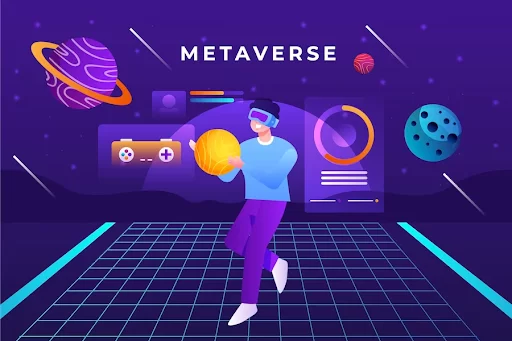
The metaverse is a virtual world that combines the physical and digital worlds. It’s a concept that has been around for a while, but in recent years, there has been a significant increase in interest and investment in the metaverse. This growth is expected to continue in 2023 and beyond, with the potential to revolutionize many aspects of our lives, including how we work, play, and interact with each other.
One of the main drivers of the growth of the metaverse is the increasing popularity of virtual and augmented reality technologies. These technologies allow us to interact with digital content in more immersive and interactive ways, creating a more seamless experience between the physical and digital worlds.
The possibilities for utilizing the metaverse are extensive and diverse. For example, the metaverse can be used for:
- Creating new forms of entertainment, such as virtual concerts, sports events, and theme parks.
- Education and training allow people to learn and practice skills in a virtual environment.
- Remote work and collaboration, creating virtual workspaces where people can meet and collaborate regardless of their physical location.
From a business perspective, the growth of the metaverse presents both opportunities and challenges.
On the one hand, businesses that can create compelling and engaging experiences in the metaverse will be able to reach a broader audience and potentially generate new revenue streams. On the other hand, businesses that fail to adapt to this new reality risk being left behind.
4. Progressive web apps
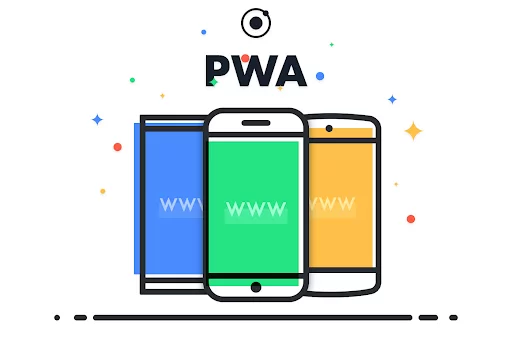
Progressive web apps (PWAs) are web applications that are designed to provide a native app-like experience to users while still being accessible through a web browser. PWAs have been around for a few years. Still, in 2023, they are expected to become even more popular as businesses look for ways to provide their customers with a seamless and engaging mobile experience.
PWAs offer several advantages over traditional mobile apps. For example, they can be accessed through a web browser, meaning users don’t need to download and install an app on their devices. This can reduce the entry barrier for users and help businesses reach a broader audience.
In addition, PWAs are designed to work seamlessly across different devices and platforms, including desktops, smartphones, and tablets. They can also be designed to work offline. The app remains accessible to users even without an internet connection.
Here are two important benefits progressive web apps offer to businesses:
- They can help businesses provide a better mobile experience to their customers, which can lead to increased engagement and loyalty.
- Since PWAs can be accessed through a web browser, businesses can avoid the costs and complexities of developing and maintaining native mobile apps.
However, PWAs are not a one-size-fits-all solution. They may not be suitable for all types of apps, and there are some limitations to what can be achieved through a web-based app.
Nevertheless, for businesses looking for a cost-effective and user-friendly way to provide a mobile experience to their customers, PWAs are worth considering.
5. Cross-platform development
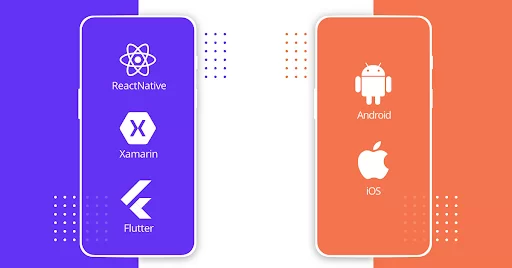
The world is moving towards a unified experience. Mobile app development is no exception. Cross-platform development is the latest trend in mobile app development.
Cross-platform development creates mobile applications that can run on multiple platforms, such as iOS and Android, using a single codebase.
Several tools and frameworks are available for cross-platform development, such as React Native, Xamarin, and Flutter. These tools allow developers to write code once and then deploy it to multiple platforms while still providing a native-like experience to users.
The main benefits of cross-platform development are:
- Lower development costs
- Reduced time to market
- Enables your product/service to reach more customers
Businesses can leverage cross-platform development to reach a broader audience. Their apps can be available to users on different platforms without needing separate development efforts. This can also help businesses save time and money on development and maintenance costs, as they can use a single codebase for multiple platforms.
6. Low-code/No-code development

Low-code and no-code development are approaches to software development that aim to reduce the coding required to create applications.
Low-code development involves visual interfaces and drag-and-drop tools, while no-code development allows users to create applications without coding.
In 2023, low-code and no-code development are expected to continue to gain popularity. Businesses seek ways to accelerate the development process and reduce costs.
These approaches help businesses in three ways:
- They allow businesses to create applications quickly and rely less on skilled developers. This can help businesses reduce development costs and accelerate time-to-market for their products.
- Low-code and no-code development tools often come with pre-built templates and integrations. This makes it easier to create complex applications that integrate with other systems.
- They help bridge the gap between business and IT teams. Business users can use low-code and no-code tools to create applications that meet their specific needs without relying on IT teams to develop custom solutions.
Ultimately, the key to leveraging low-code and no-code development is to have a clear understanding of business requirements and a solid understanding of the capabilities of the tools being used. By doing so, businesses can create applications that are both innovative and engaging for their customers while also delivering value to their bottom line.
7. Personalization and security
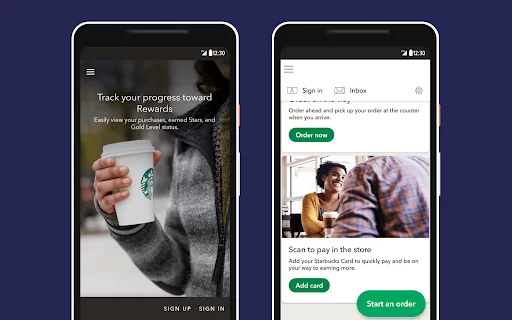
Personalization will also be a key trend in mobile app development as users seek customized experiences that cater to their preferences and interests. This will require app developers to integrate more user data and analytics into their design and development processes.
On the other hand, security and privacy will remain critical concerns for mobile app developers in 2023. As the threat of cyberattacks and data breaches continues, app developers must implement robust security protocols and stay up-to-date with the latest security standards to protect user data.
A Wrap: Mobile App Development Trends Taking Center Stage
Mobile app development trends in 2023 are expected to be more user-centric, personalized, and technologically advanced. As more people embrace mobile technology, app developers are under pressure to create innovative and immersive experiences that meet users’ needs.
With the rise of AI, AR/VR, and blockchain, developers will have access to new tools that will enable them to create unique and engaging apps.
By embracing new technologies, personalization, and security, app developers can create mobile experiences that are both innovative and user-friendly.
Innovify is a leading mobile app development company that stays up-to-date with the latest trends in the industry. They offer innovative and cutting-edge solutions to their clients, ensuring their apps are functional and user-friendly. It is recognized as one of the top app development companies.

